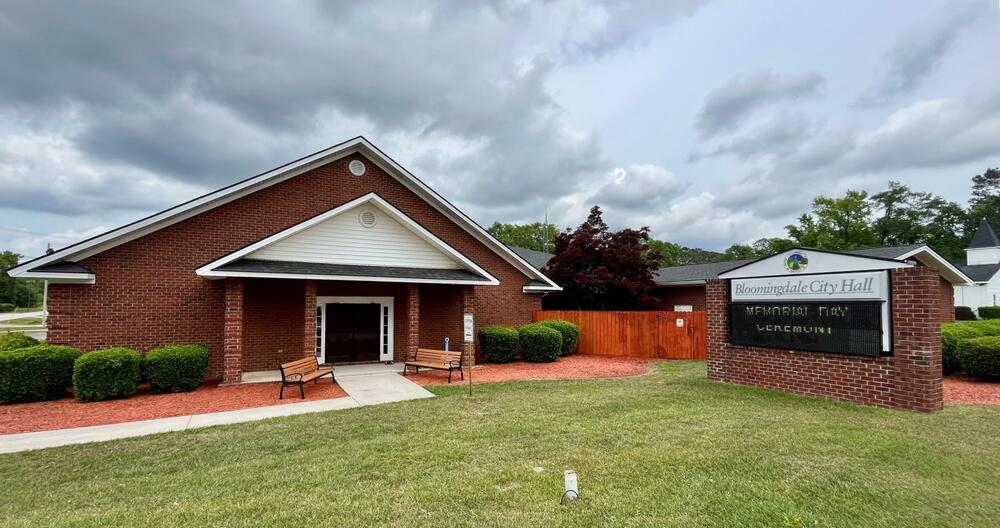
Section Branding
Header Content
Landowners sue Savannah suburb over alleged pay-to-play commercial zoning scheme
Primary Content
LISTEN: A group of landowners is suing the city of Bloomingdale, claiming their zoning requests were denied while other developers got theirs approved after making large payments to a city gymnasium fund. GPB's Benjamin Payne reports.

Three property owners in Southeast Georgia's Chatham County have filed a federal lawsuit against the city of Bloomingdale and several city officials, alleging they were denied commercial zoning approvals that were granted to other developers who made substantial monetary "donations" to the city.
The complaint, filed June 16 in U.S. District Court for the Southern District of Georgia, accuses the Savannah suburb of operating what amounts to a pay-to-play system for rezoning applications, violating the plaintiffs' constitutional right to equal protection under the law.
Plaintiffs Ston Yates, Nhan Van Hoang, and Terrence Thao Truong claim Bloomingdale approved similar industrial warehouse developments for other applicants only after those developers pledged hundreds of thousands of dollars for recreational facilities, while their own applications were repeatedly denied despite offering to make comparable contributions.
The city of Bloomingdale did not respond to GPB's request for comment on the lawsuit, which centers around two approved warehouse developments in 2020 that plaintiffs say were "identical in all material respects" to their proposed project.
According to the complaint, the first development was approved only after investors pledged $1.75 million to the city for construction of a new gymnasium, while the second project was approved after its backers pledged $750,000 for "recreational use."
The plaintiffs' properties, totaling 233 acres and located within Bloomingdale's city limits, have been the subject of three separate rezoning attempts since 2021, all seeking to develop industrial warehouses.
Their first application in May 2021 sought to rezone the land from agricultural to intensive industrial use, but the Bloomingdale City Council voted unanimously to deny it in January 2023 without offering the plaintiffs an opportunity to make a donation, according to the lawsuit.
The plaintiffs' attorney sent a letter in February 2025 offering to donate to the city's gymnasium fund as part of a development agreement for their second application, but the city's attorney responded that the municipality would not move forward, citing unspecified state law concerns.
When the plaintiffs filed a third application in April 2025 along with another donation offer, the city again declined to proceed, this time claiming it needed to wait for a state review of the project as a "Development of Regional Impact."
The lawsuit argues that the city's refusal to accept the plaintiffs' donation offers while approving similar projects from developers who made financial commitments constitutes unequal treatment under the law.
The case also raises questions about the legality of the city's practice of accepting developer donations, which the complaint alleges violates Georgia's Development Impact Fee Act.
Such monetary exactions by local governments have been subject to constitutional scrutiny since the U.S. Supreme Court's landmark decisions in Nollan v. California Coastal Commission and Dolan v. City of Tigard in 1987 and 1994, respectively.
Those cases established that government-imposed conditions on development permits must demonstrate an "essential nexus" between the condition and the government's stated purpose, and maintain "rough proportionality" between the condition's burden and the development's impact.
The plaintiffs are seeking compensatory damages totaling more than $39 million for their first denied application alone, representing the difference between their properties' current agricultural zoning value and what the land would be worth if rezoned for industrial use.
The lawsuit demands a jury trial and requests additional damages for the two subsequent applications, plus attorney fees and court costs.

